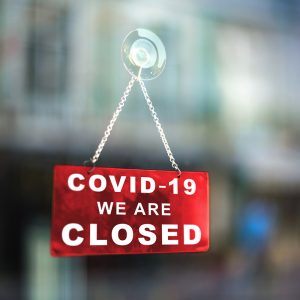Business interruption losses and COVID-19 after Friends of Danny Devito, et. al v. Tom Wolf, Governor of Pennsylvania, 2020 WL 1847100 (PA, April 13, 2020)
by Michael F. Pezzulli 
Business owners, you may actually have insurance coverage for COVID-19 losses. If you are a business owner with insurance coverage, the recent ruling in Friends of Danny Devito, et. al v. Tom Wolf could be a significant advantage in obtaining relief from losses stemming from COVID-19 closure or business interruption.
Court rules COVID-19 qualifies as a natural disaster
On April 13, 2020, the Pennsylvania Supreme Court held that COVID-19 qualifies as a natural disaster under the Pennsylvania Emergency Code. Under this Pennsylvania Emergency Code, a disaster is defined as a “man-made disaster, natural disaster or war-caused disaster”. The Court noted that a “natural disaster” was defined as:
Any hurricane, tornado, storm, flood, high water, wind-driven water, tidal wave, earthquake, landslide, mudslide, snowstorm, drought, fire, explosion or other catastrophe which results in substantial damage to property, hardship, suffering or possible loss of life.
The Court went on to find that “it is beyond dispute that the COVID-19 pandemic is unquestionably a catastrophe that ‘results in … hardship, suffering or possible loss of life.’ The issue, then, is whether it nevertheless may not be classified as a ‘natural disaster’ caused by unforeseen factors based upon the application of the doctrine of ejusdem generis. In other words, “Under the statutory construction doctrine of ejusdem generis (‘of the same kind or class’), where general words follow the enumeration of particular classes of persons or things, the general words will be construed as applicable only to persons or things of the same general nature or class as those enumerated.”
The Court significantly went on to say that “We agree … that the COVID-19 pandemic qualifies as a ‘natural disaster’ under the Emergency Code for at least two reasons. First, the specific disasters in the definition of ‘natural disaster’ themselves lack commonality, as while some are weather related (e.g., hurricane, tornado, storm), several others are not (tidal wave, earthquake, fire, explosion). To the contrary, the only commonality among the disparate types of specific disasters referenced is that they all involve ‘substantial damage to property, hardship, suffering or possible loss of life.’ In this respect, the COVID-19 pandemic is of the ‘same general nature or class as those specifically enumerated.’ And thus is included, rather than excluded, as a type of ‘natural disaster.’ … The COVID-19 pandemic is, by all definitions, a natural disaster and a catastrophe of massive proportions.”
How the Texas Business & Commerce Code Defines “Natural Disaster”
Much like in Pennsylvania, Texas Governor Abbott issued a declaration of a state of disaster due to the threat of the novel coronavirus on March 13, 2020. The Texas Business & Commerce Code defines a “natural disaster” to mean “the occurrence of widespread or severe damage, injury, or loss of life or property related to any natural cause, including fire, flood, earthquake, wind, storm, or wave action that results in a disaster declaration by the governor or a local disaster declaration by a county judge under Chapter 418, Government Code.” Texas Business & Commerce Code § 57.001.
As can be seen, the definition of “natural disaster” in Pennsylvania and Texas have essentially the same language. Therefore, the Pennsylvania Supreme Court ruling in Friends of Danny Devito, et. al v. Tom Wolf may have a long-range and significant impact on Texas businesses who could recover some damages from their insurance providers due to COVID-19 injuries or forced closures, and/or as a result of mandatory shutdown or “stay-at-home” orders issued by federal, state or local government authorities.
Don’t wait to file a COVID-19 business interruption insurance claim
If you are a business owner with insurance, your first order of business is to review your policy closely to determine whether “natural disasters” are a covered peril, and whether your policy specifically excludes losses due to communicable diseases or viral contamination. Although many insurers are taking the position that claims related to COVID-19 are not covered, and some state legislators are pressing insurers to cover COVID-19 losses, don’t let those headlines dissuade you from filing a claim when the terms of your policy may actually allow you to recover certain losses.
When I review a business insurance policy with language that indicates the policy holder has a right to recovery, I strongly advise the owner to file expeditiously. Most insurance policies require policy holders to file claims “promptly”, and delaying may provide a basis to deny your claim. If natural disasters are a covered peril under your business interruption policy, the Pennsylvania Supreme Court case Friends of Danny DeVito, et. al. v. Tom Wolf is an important legal precedent that may play a critical role in obtaining the coverage you need to keep your business from failing as a result of the COVID-19 crisis.
 Texas Law Updates
Texas Law Updates

